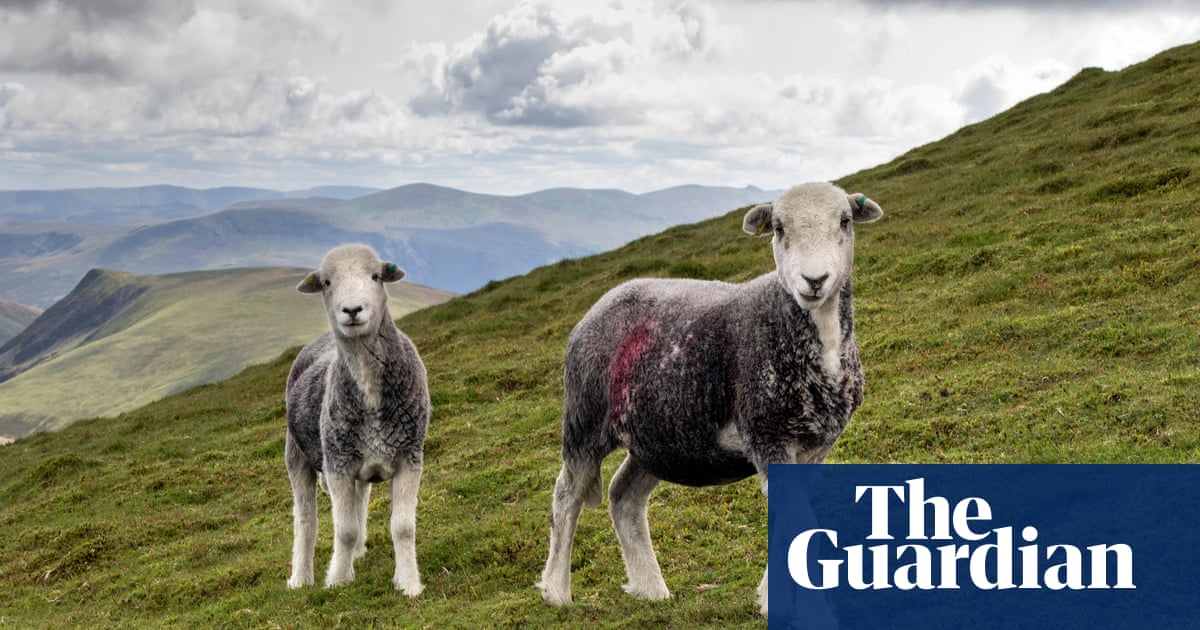Some farms in England could be taken entirely out of food production under plans to make more space for nature, the environment secretary has said.
Speaking at the Groundswell farming festival in Hertfordshire, Steve Reed said a revamp ofpost-Brexit farming subsidiesand a new land use plan would be aimed at increasing food production in the most productive areas and decreasing or completely removing it in the least productive. In reality, this means many upland farmers may be incentivised to stop farming.
He said his land use framework “envisions taking some of the least productive land out of food production, but supporting the more productive land to increase production”.
Reed said this was so “you maintain outputs, or even increase outputs while increasing the space for nature. We have a limited amount of land in this country for the many demands we we make of it, for food production, for housing, for energy and for nature, and we need to make sure that we are using them optimally for all of those outcomes.”
He said communities would be supported through the transition: “I grew up in the 80s, and the Thatcher government at the time destroyed the industry that my entire family worked in, and nothing was put in place. So those communities were destroyed, and one of the reasons I got involved in politics was to make sure that can’t happen again.”
Reed also announced a reopening of a £150m fund that will pay farmers for actions such as wildfire prevention, hosting educational visits and storing slurry in an environmentally friendly way. From next year, farmers will also be paid under this scheme to dig ponds on their land to store water and help biodiversity.
Farmers also face more upheaval as Reed announced an overhaul of the nature-friendly farming scheme. This pays farmers to do things such as leave wildflower borders for birds, plant hedgerows and reduce their use of pesticides.
The nature-friendly farming programme was devised by the Conservatives after Brexit: the goal was that rather than being paid per acre, farmers should be paid for improving nature. At the spending review, it was announced the budget would be cut by an average of £100m a year between this year and 2029.
Sign up toDown to Earth
The planet's most important stories. Get all the week's environment news - the good, the bad and the essential
after newsletter promotion
Reed said the scheme would be “simplified”, adding: “We need to return firmly to the principle of public money for public goods. Our reformed SFI [sustainable farming incentive] will maximise benefits for the environment, particularly around water quality and biodiversity, so we can clean up our polluted rivers, welcome wildlife back to farms and strengthen the natural foundations that are vital to sustainable food production. We will simplify the SFI and support farmers to take on packages of actions, which, when they’re done together, achieve more for nature.”
